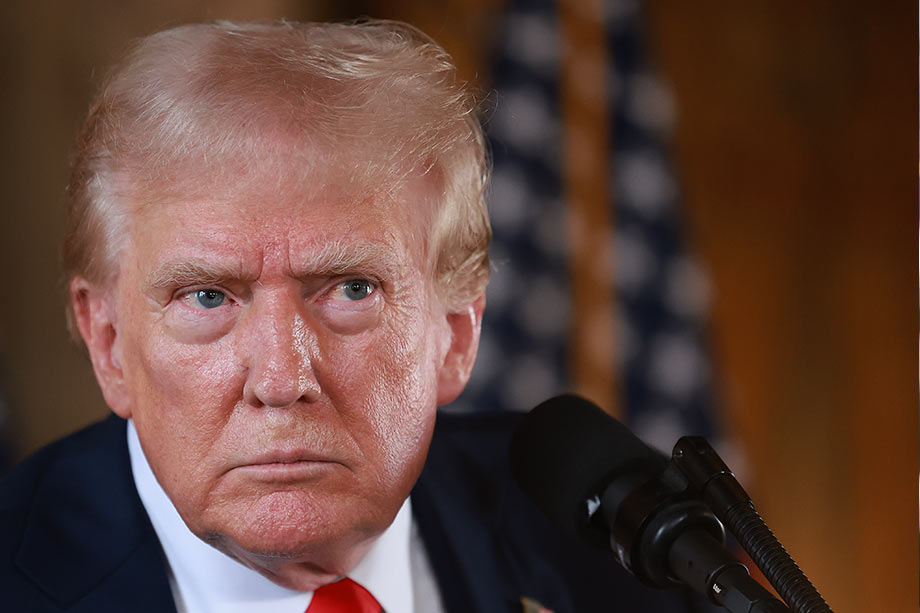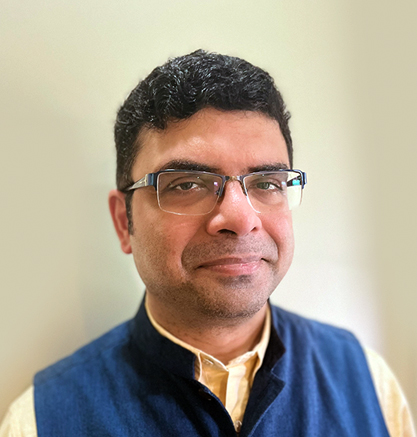-
CENTRES
Progammes & Centres
Location
Trump’s shift on Taiwan, from omitting opposition to independence to boosting defence ties, sparks tension with Beijing. Is it leverage or Asia pivot?

Image Source: Getty
The United States State Department's egregious omission on its website of the phrase, “does not support Taiwan’s independence” and that it would “endorse Taipei’s entry into international organisations” has provoked strong reactions in Beijing. Coupled with the State Department referring to the mainland merely as ‘China’, not the People’s Republic of China (PRC), these seem to be key shifts by the incoming Trump administration. This has caused great heartburn in Beijing given the new Secretary of State Marco Rubio’s credentials as a “China hawk”. The latest phrasing reads that the US opposes unilateral changes to the (Taiwan) status quo from either side and that cross-strait differences have to be resolved peacefully, devoid of coercion and in a manner acceptable to the people on both sides of the Strait. The State Department also expects greater defence cooperation and semiconductors, citing Taiwan’s National Science and Technology Council starting two hubs in 2024 for integrated circuits in collaboration with the Pentagon. The State Department’s resolution to support Taiwan’s inclusion in international organisations has buoyed sentiments on the island that has been reeling under Beijing’s coercion, with Taiwan’s Foreign Minister Lin Chia-lung welcoming Rubio’s commitment to Taiwan. Over the last few years, China has assiduously campaigned to keep Taiwan out of international bodies even if their ambit involves global public goods like pandemic cooperation. When the World Health Organization convened in 2021 at the height of the pandemic that had spurred international cooperation, member states did not discuss Taiwan’s participation in the proceedings to avoid displeasing Beijing. This is despite healthcare experts lauding Taipei’s success in responding and containing the contagion. On these grounds, some nations had initially mooted a proposal to include Taiwan as an observer, but it was later dropped.
The State Department’s resolution to support Taiwan’s inclusion in international organisations has buoyed sentiments on the island that has been reeling under Beijing’s coercion, with Taiwan’s Foreign Minister Lin Chia-lung welcoming Rubio’s commitment to Taiwan.
Second, being an island, Taiwan relied heavily on air connectivity for travel and trade. The Taoyuan International Airport in Taiwan is the eighth busiest cargo terminal. Taiwan’s 17 airports saw a footfall of nearly 72 million flyers in 2019. Despite that, Taipei is blocked from the International Civil Aviation Organization, which is primarily a global body for the formulation of standards in aviation. Taipei's exclusion from the world aeronautics body means it is precluded from collective international initiatives and issues dealing with technical interoperability, green standards, anti-narcotics and anti-terrorism cooperation, and even emerging developments in aviation technology like remotely piloted aircraft. China has worked to erode Taiwan's diplomatic recognition following then-president Tsai Ing-wen’s rejection of the ‘one country, two systems’ notion.
Significantly, around President Lai Ching-te’s inauguration in January 2024, the Pacific nation of Nauru switched diplomatic recognition to Beijing from Taipei. It has repeatedly resorted to coercion via military exercises around Taiwan in response to visits by foreign dignitaries to Taipei or on days of national and political significance, like the inauguration of President Lai and Taiwan National Day in October 2024. In his first National Day address, Taiwanese President Lai Ching-te asserted that the nation’s sovereignty could not be infringed upon and that Beijing had no right to represent Taipei. Beijing is suspicious that Lai is pushing the ‘two-state theory’, warning that the outcome of working for Taiwan’s independence is a conflict. An article in the People’s Daily also looks askance at Washington’s role in pushing Taiwan’s elite towards independence and accuses the US of scheming to use the Taiwan card to control the mainland. Referencing President Lai’s assertion that Taiwan is a ‘chess player, not a chess piece,’ Qiu Yi, a professor at Chinese Culture University, Taiwan, writes in Guancha, a Chinese nationalist media outlet, about Taipei’s ambition. Qiu argues that Taipei’s political elite since the 1960s has conceptualised Taiwan as America’s unsinkable aircraft carrier in the Western Pacific and sees its purpose as a pawn for the West to contain the mainland. Second, he posits that the ruling elite in Taiwan believe in the stratagem of ‘yǒu qián néng shǐ guǐ tuī mó’ [有钱能使鬼推磨], meaning that they can deploy their formidable foreign exchange reserves of about US $576 billion to enlist powerful foreign dignitaries and small nations to their cause and speak for them at the United Nations. China also sees designs behind Taiwan’s push for semiconductor cooperation with other countries. Qiu counters that the elite in Taipei also harbour the notion that the dominance of its chip industry will serve it like ‘shén shān’ [神山] or divine mountain protecting it against external threats. These beliefs have spurred China’s diplomatic blitzkrieg and resulted in nearly 70 nations recognising China’s sovereignty over Taiwan. Many of these nations, which have signed on to Beijing’s bandwagon, say China is well within its rights to undertake reunification efforts to fruition. Thus, Trump’s semantic shift could not have come at a better time to reassure the besieged Taiwanese.
The Chinese side had specifically sought that Washington alter its stance on Taipei, stating categorically that it “opposed Taiwan independence,” instead of not supporting the general idea of independence.
The State Department has also updated its factoid on the mainland, referring to China as merely the mainland, not the formal People’s Republic of China. The new webpage also lists Washington’s priorities vis-à-vis Beijing, that the US seeks to address its relationship with China “under the principles of reciprocity and fairness”, and counter the Chinese Communist Party’s (CCP) ‘malicious cyber activity’ against the US government. This distinctive nuance between China and the Communist Party commenced during Trump’s first presidential term. The then-Secretary of State Michael Pompeo had repeatedly referred to ‘Communist China’ during his speech at the Richard Nixon Presidential Library in July 2020. This phraseology reinforced that US actions are directed at the regime and not its citizens. Interestingly, the US establishment had made a similar distinction in the 1930s about Nazi Germany, as well.
In summation, during the 2023 San Francisco summit, Chinese President Xi Jinping raised the issue of Washington’s stand on Taiwan with then-US President Joe Biden. The Chinese side had specifically sought that Washington alter its stance on Taipei, stating categorically that it “opposed Taiwan independence,” instead of not supporting the general idea of independence. However, the Biden administration did not yield on the issue, and now the Trump administration has omitted the sentence that it does not back Taiwan’s ‘independence’. Coupled with this development is the declaration by the US–Japan–Korea trilateral conference at the sidelines of the Munich Security Conference that underscored maintaining peace and stability across the Taiwan Strait as an indispensable element of security and prosperity for the international community. The question is whether Trump’s semantic tweaks on Taiwan and China are an attempt by Washington to stock up leverage in its arsenal for negotiations with Beijing, or seen in conjunction with the abandoning of the Ukraine cause signal Trump’s Asia pivot.
Kalpit A Mankikar is a Fellow with the Strategic Studies programme at the Observer Research Foundation.
The views expressed above belong to the author(s). ORF research and analyses now available on Telegram! Click here to access our curated content — blogs, longforms and interviews.

Kalpit A Mankikar is a Fellow with Strategic Studies programme and is based out of ORFs Delhi centre. His research focusses on China specifically looking ...
Read More +